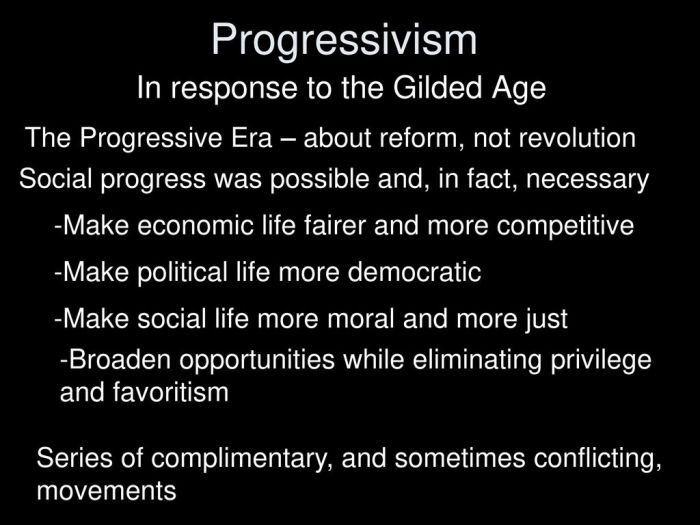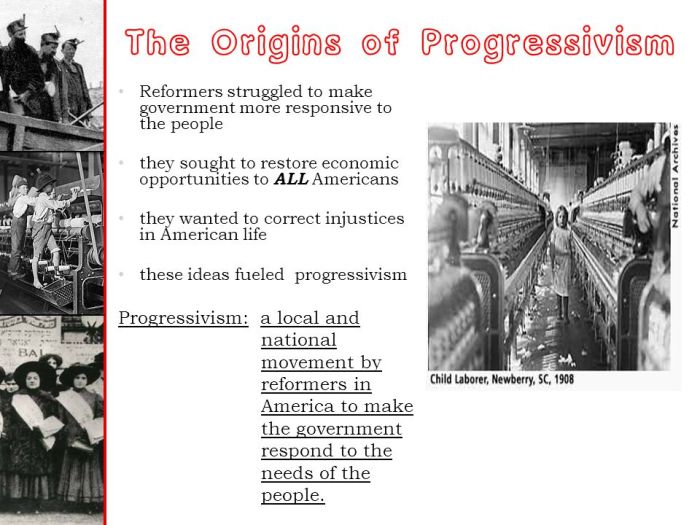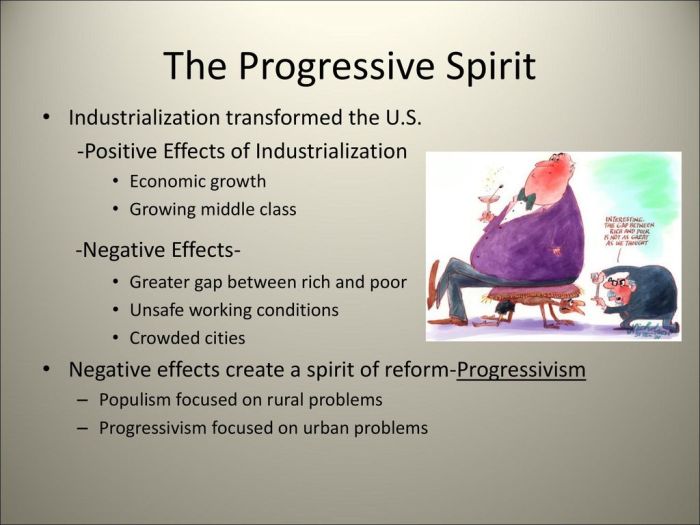How did the progressive philosophies of roosevelt and wilson differ – The progressive philosophies of Theodore Roosevelt and Woodrow Wilson shaped the early 20th century in the United States. Both presidents sought to address the social and economic problems of the era, but their approaches differed in significant ways.
Roosevelt’s philosophy was based on the idea of a “Square Deal” for all Americans. He believed that the government should play an active role in regulating the economy and protecting the interests of ordinary citizens. Wilson, on the other hand, believed that the government should be more limited in its scope, and he focused on promoting social justice and economic fairness.
Overview of Roosevelt and Wilson’s Progressive Philosophies

The Progressive Era, spanning from the late 19th century to the early 20th century, witnessed the emergence of two influential presidents, Theodore Roosevelt and Woodrow Wilson, who championed progressive reforms. Their progressive agendas shared common principles of addressing social and economic inequalities, but their approaches and emphases differed in certain aspects.
Similarities, How did the progressive philosophies of roosevelt and wilson differ
- Both Roosevelt and Wilson believed in the need for government intervention to regulate and control economic and social forces.
- They advocated for social justice, including improved labor conditions, expanded educational opportunities, and healthcare reforms.
- They sought to curb the power of big business and promote competition through antitrust laws.
Differences
- Roosevelt’s approach was more pragmatic and incremental, focusing on specific, tangible reforms within the existing political system.
- Wilson’s approach was more idealistic and comprehensive, seeking to overhaul the entire political and economic landscape through structural changes.
- Roosevelt relied heavily on executive power and public pressure, while Wilson used his legislative skills to enact comprehensive laws.
Economic Policies

Government Intervention
Roosevelt believed in limited government intervention in the economy, primarily through antitrust laws to break up monopolies and promote competition. Wilson, on the other hand, advocated for a more active role for the government in regulating the economy, including the creation of the Federal Reserve System to stabilize the financial system.
Specific Policies
- Roosevelt’s Square Deal included antitrust laws such as the Sherman Antitrust Act and the Clayton Act.
- Wilson’s New Freedom included the Federal Trade Commission Act and the Clayton Antitrust Act amendments.
- Roosevelt established the Pure Food and Drug Act to regulate food and drug safety.
- Wilson created the Federal Farm Loan Act to provide low-interest loans to farmers.
Social Policies: How Did The Progressive Philosophies Of Roosevelt And Wilson Differ
Labor Rights
Roosevelt supported the rights of labor unions and advocated for the establishment of an eight-hour workday. Wilson passed the Adamson Act, which established an eight-hour workday for railroad workers.
Education
Roosevelt established the National Child Labor Committee to address child labor issues. Wilson supported federal funding for vocational education and teacher training.
Healthcare
Roosevelt promoted public health initiatives and supported the creation of a national health department. Wilson established the Children’s Bureau to address child welfare and health.
Foreign Policy

Imperialism
Roosevelt believed in the United States’ role as a global power and supported the acquisition of overseas territories. Wilson initially opposed imperialism but later intervened in Latin America and the Caribbean to protect American interests.
International Cooperation
Roosevelt advocated for the use of international diplomacy to resolve conflicts. Wilson promoted the idea of collective security through the League of Nations.
Role of the United States
Roosevelt saw the United States as a “police power” with a responsibility to intervene in international affairs. Wilson believed that the United States should play a more cooperative and diplomatic role in world affairs.
Political Strategies

Executive Power
Roosevelt made extensive use of executive orders and presidential power to implement his reforms. Wilson relied more on legislation and persuasion to achieve his goals.
Political Alliances
Roosevelt forged alliances with labor unions, farmers, and progressive Republicans. Wilson built a coalition of Democrats, Progressives, and some Republicans.
Public Opinion
Both Roosevelt and Wilson used public opinion to pressure Congress and influence policy decisions.
Impact and Legacy
The progressive reforms of Roosevelt and Wilson had a profound impact on American society. They led to the establishment of antitrust laws, labor protections, and social welfare programs. Their policies helped to reduce economic inequality, improve working conditions, and expand educational opportunities.
The legacy of Roosevelt and Wilson’s progressive ideals continues to shape American politics and policymaking. Their belief in government intervention to address social and economic problems remains a central tenet of the progressive movement today.
User Queries
What were the key differences between Roosevelt’s and Wilson’s progressive philosophies?
Roosevelt believed in a more active role for the government in regulating the economy and protecting the interests of ordinary citizens, while Wilson believed that the government should be more limited in its scope and focus on promoting social justice and economic fairness.
What were some of Roosevelt’s most important progressive reforms?
Roosevelt’s most important progressive reforms included the establishment of the Food and Drug Administration, the creation of the National Park Service, and the passage of the Sherman Antitrust Act.
What were some of Wilson’s most important progressive reforms?
Wilson’s most important progressive reforms included the passage of the Federal Reserve Act, the creation of the Federal Trade Commission, and the passage of the Clayton Antitrust Act.